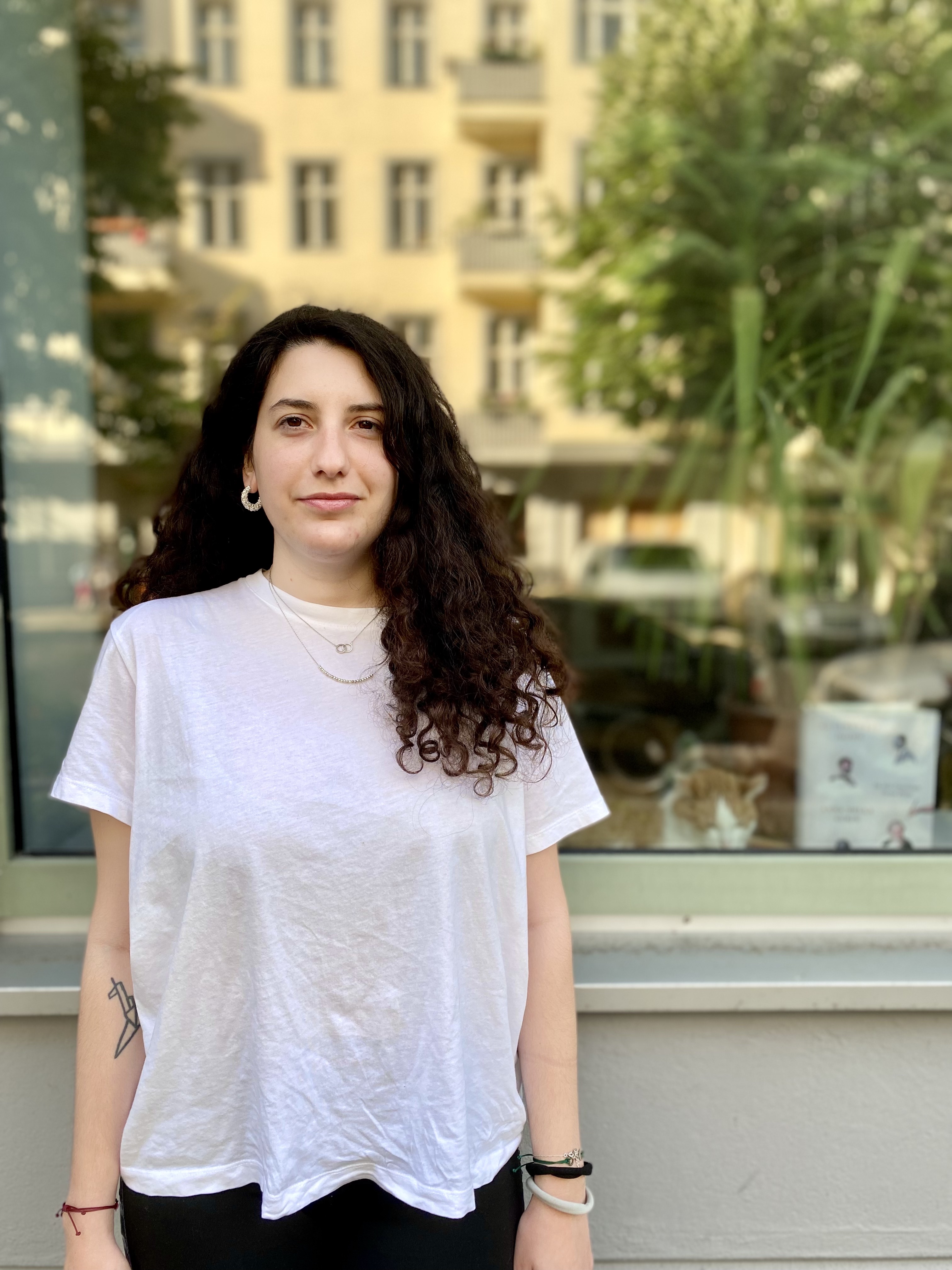Slavs and Tatars’ Fellowship in Residency program is designed for artists, curators, researchers, and scholars from the collective’s Eurasian remit (Eastern Europe, the Caucasus, and Central Asia). A fully-equipped one-room studio apartment, contiguous to the Slavs and Tatars’ working space in Berlin-Moabit, is available for residents for a period of 2 months.
What makes the program unique is the confluence of theory and practice; discourse and production. Residents split their time between their own practice and a mentorship program, which is incorporated into Slavs and Tatars’ collaborative practice and various activities: from research and production, design and archiving, events and press.
During their stay, each resident is invited to conceive of a public presentation to take place at Slavs and Tatars’ Pickle Bar, an event and project space cum aperitivo bar a few doors down from the studio.
Slavs and Tatars’ Mentorship and Residency program is designed for artists, curators, researchers, and scholars from the collective’s Eurasian remit (Eastern Europe, the Caucasus, and Central Asia). A fully-equipped one-room studio apartment, contiguous to the Slavs and Tatars’ working space in Berlin-Moabit, is available for residents for a period of 2 months.
What makes the program unique is the confluence of theory and practice; discourse and production. Residents split their time between their own practice and a mentorship program, which is incorporated into Slavs and Tatars’ collaborative practice and various activities: from research and production, design and archiving, events and press.
During their stay, each resident is invited to conceive of a public presentation to take place at Pickle Bar, an event and project space cum aperitivo bar a few doors down from the studio.

MAXIM POLEACOV︎︎︎ NOVEMBER 2025 ︎︎︎ JANUARY 2026
Maxim Poleacov was born in Tiraspol and currently works in Chisinau (Moldova) as cultural operator, publisher, organizer and coordinator of 3rd Space Studio — communal workshop for diverse practices related to DIY Printed Matter. Maxim's current research focuses on methodologies for ‘samizdat’ (low-run self-publishing), and approaches this practice primarily not in the way of object fetisization, but as a platform to build and develop conversations, social situations, and communication spaces. Examples include grassroots editorial experiments and distribution centers, open studios and temporary services such as pop-up cafes or libraries. He examines how publishing becomes a means of communication and a tool for organizing collectives.
The residency is supported by ifa (Institut für Auslandsbeziehungen).
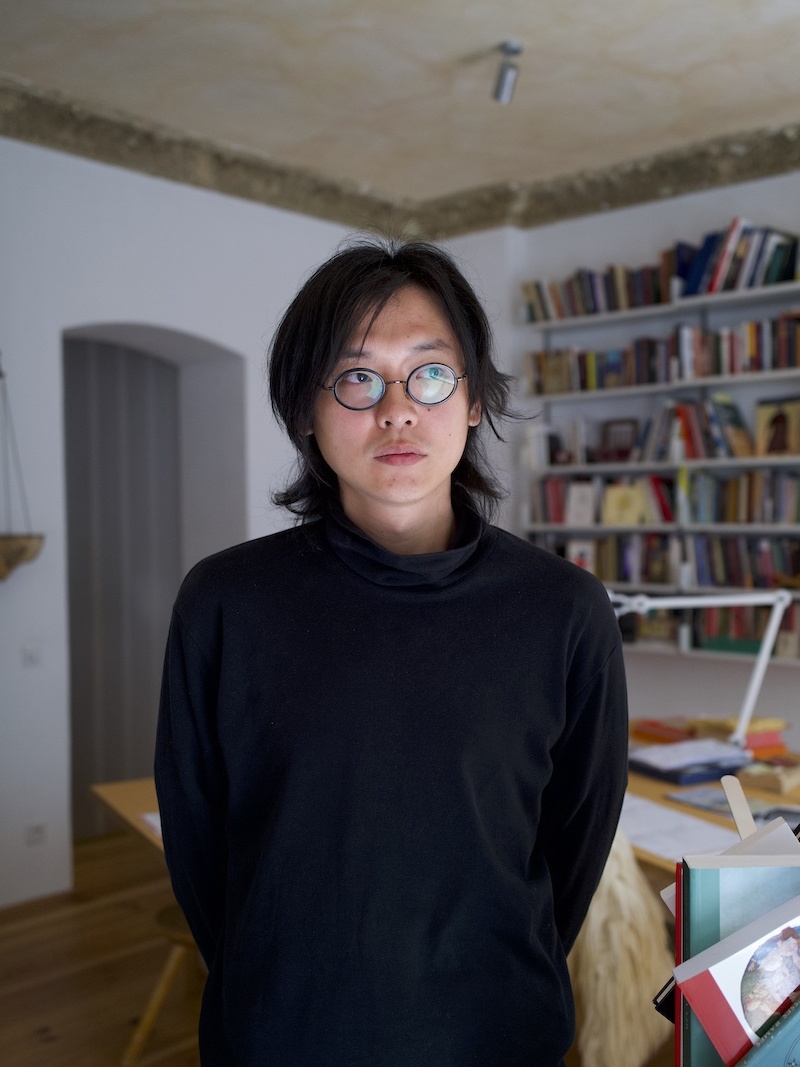
YE WUJI ︎︎︎ JUNE 2025 ︎︎︎ JULY 2025
An artist and a dutar apprentice based in London and southern China. He is interested in displacement, liminality, remainders, and “mobile society”. His research and practise are activated through bodily experience and may be metabolized into a sensuous and debatable form of social commentary. Since 2015, a major part of his practice has focused on the Tianshan Mountains regions and the Eurasia connects to it. On a Sunday in 2019, Wuji became a member of the Central Asia Plov Society and holds on to a belief that plov is the most delicious food in the world.
The residency is initiated with Shanghai Rockbund Art Museum, realised in collaboration with Goethe-Institut, and generally supported by De Ying Foundation.

ZHILLAR SIRI ︎︎︎ MARCH 2025 ︎︎︎ MARCH 2026
A member of Zhillar Siri, a collective of Uyghur artists based between Inner and Eastern Turkestan, between the lost Circassia and the never-realized Republic of Sale, will spend a year in Berlin, conducting a research on the questions of literature and texts in Russian language, written by non- Russian writers. They study the remnants left behind by revolutionaries shot in the 1930s, alongside Asian rebels buried in concrete, “unreliable” peoples, and steppe aristocrats exiled to distant lands — as well as poetry.
The scholarship is supported by the Fellowship Program “Weltoffenes Berlin” by the Senate Department for Culture and Europe.

ISKRA PRODANOVA ︎︎︎ FEBRUARY 2025 ︎︎︎ APRIL 2025
Iskra Prodanova (b. 1988, Varna, Bulgaria) is a multidisciplinary artist and researcher with a background in contemporary dance and performance art. She is the co-founder, curator, and artistic director of the Moving Body platform (est. 2016, Varna). Her latest research explores (inner) UTOPIA as resistance and resilience, investigating art, identity, memory, colonial legacies, collective healing, and justice through the lens of the present. She focuses on liminality, slowing down, (un)learning, and listening to embrace new ways of being.
The residency is supported by ifa (Institut für Auslandsbeziehungen).
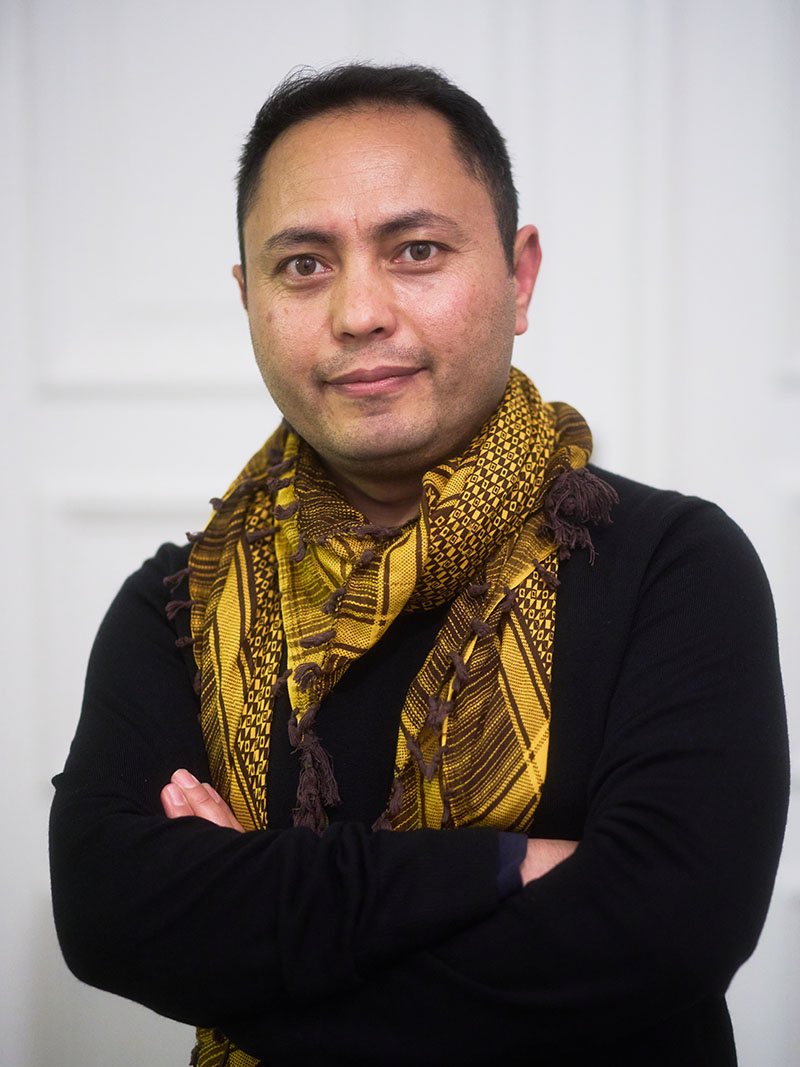
HADI RAHNAWARD ︎︎︎ SEPTEMBER 2024 ︎︎︎ OCTOBER 2024
Hadi Rahnaward was born in Wardak province of Afghanistan and grew up in Kabul, the country’s capital. Currently, he is based in Lille, France. He received his bachelor’s in fine arts from Kabul University and his master’s in Art and Design Studies from BeaconHouse National University in Lahore, Pakistan. Sociopolitical changes in his homeland profoundly influenced Rahnaward’s journey as an artist. His work focus on themes such as vicious cycle, displacement of values, and captivity, drawing inspiration from individual and collective narratives. For him, art is a powerful medium of expression that can contribute to developing collective social and political understanding.
The residency is supported by Asia Contemporary Art Forum (ACAF).
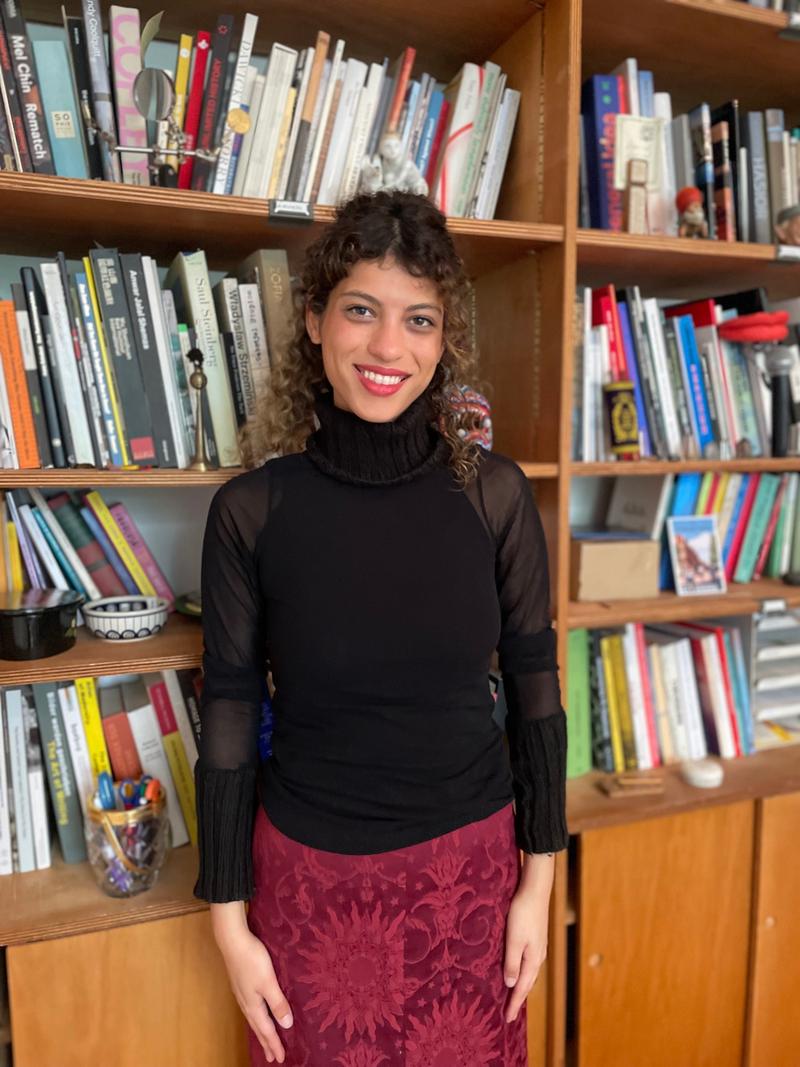
LOULWAH KUTBI ︎︎︎ JUNE 2024 ︎︎︎ AUGUST 2024
Loulwah Kutbi is an independent writer and researcher based in Jeddah and London. She has a background in cultural studies, political philosophy and visual anthropology from Birkbeck, University of London and UCL. Her research/writing practice concerns itself with notion of exilic optics, the politics of location, archival interventions and ethnographic forms of witnessing as seen through visual and literary mediations of migration and exile. She has written for Mathqaf and worked on audio and media research projects in exhibition contexts; focusing on non-centralised archiving practices emerging from public testimony and participation as a means to navigate the tensions between memory and history.
The residency is supported by Art Jameel and Goethe-Institut Saudi Arabia part of a three years collaboration with Slavs and Tatars to support young practitioners from Saudi Arabia.

ALARA VILLA
︎︎︎ JUNE 2024
︎︎︎ DECEMBER 2024
Alara Villa is a curator and researcher based in Paris, with a background in Fine Arts and History from Sorbonne University, the University of Bologna, and the EHESS. Raised between Italy and Turkey, she explores the exchange of visual and material culture across the Mediterranean region. Utilizing a multi-perspective and interdisciplinary approach, her focus extends from ancestral traditions, rituals and crafts to the production of new knowledge within the accelerated mobilities of the cosmopolis. As the co-founder of the SPAM collective (2021-2023), she continues to experiment with modes of engagement with difference and to open spaces for dialogue.
The fellowship is part of the program "Jeunes Commissaires" of the Bureau des arts plastiques of the Institut français. Supported by the French Ministry of Culture and the Franco- German Youth Office (OFAJ/FGYO)
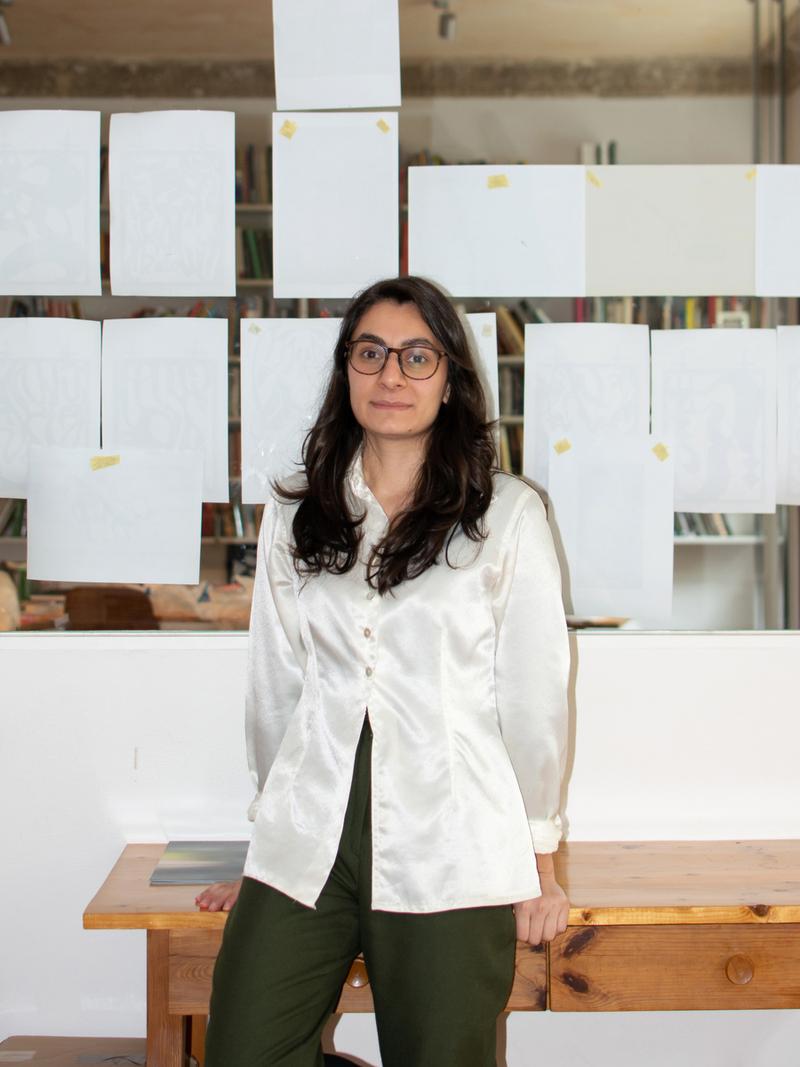
MARI KALABEGASHVILI
︎︎︎ MAY 2024
︎︎︎ JUNE 2024
Mari Kalabegashvili (b. 1999, Tbilisi) is a multimedia visual artist and cultural practitioner based in Georgia. Her research-based practice draws from collaborative and interdisciplinary knowledge-sharing processes and works with the given environment to pose the question of what happens after “ever after”. Apart from her individual praxis, she is currently involved with the Parallel Class Project creating alternative educational initiatives for high school students in Georgia.
The residency is supported by ifa (Institut für Auslandsbeziehungen).

TIMUR ZOLOTOEV ︎︎︎ February 2024 ︎︎︎ February 2025
Timur Zolotoev (b. 1989, Ulan-Ude, Buryatia) is a curator and editor working at the intersection of contemporary art and architecture. He has collaborated on projects with Haus der Kulturen der Welt (HKW) and Garage Museum of Contemporary Art and served as a curator at Lkham Gallery in Ulaanbaatar, Mongolia. Additionally, Timur contributed to the Dissolving Earths project as a member of the curatorial team. He is the former editor-in-chief of the English version of online Strelka Mag.
The residency is supported by the Fellowship Program “Weltoffenes Berlin” by the Senate Department for Culture and Europe.
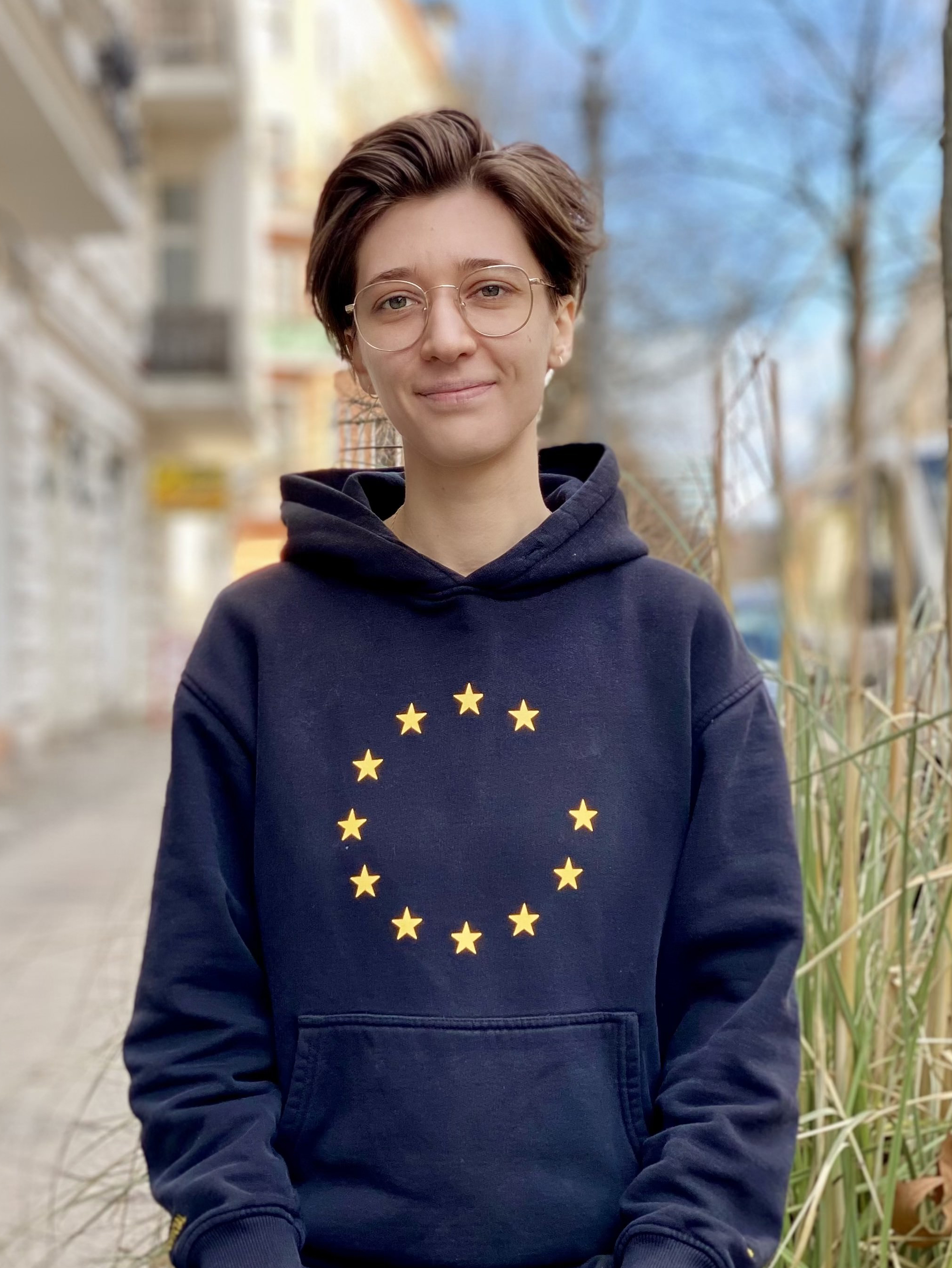
SVĚTLANA MALINOVÁ ︎︎︎ January 2024–March 2024
Světlana Malinová (b. 1997, Czech Republic) is a curator and cultural producer based in Prague. Since 2022, she has been the artistic director of the Fotograf Festival, which is one of the three projects of the Fotograf organisation. Together with Max Dvořák, she runs City Surfer Office, a multifunctional art space in Prague's Žižkov district. Through a form of gallery collective, we create an open environment for the visibility and support of the youngest generation of emerging artists. In parallel to these activities, she also collaborates on exhibition projects of independent galleries in Prague.
The residency is supported by Hope Recycling Station made possible by the National recovery plan, Ministry of Culture Czech Republic.
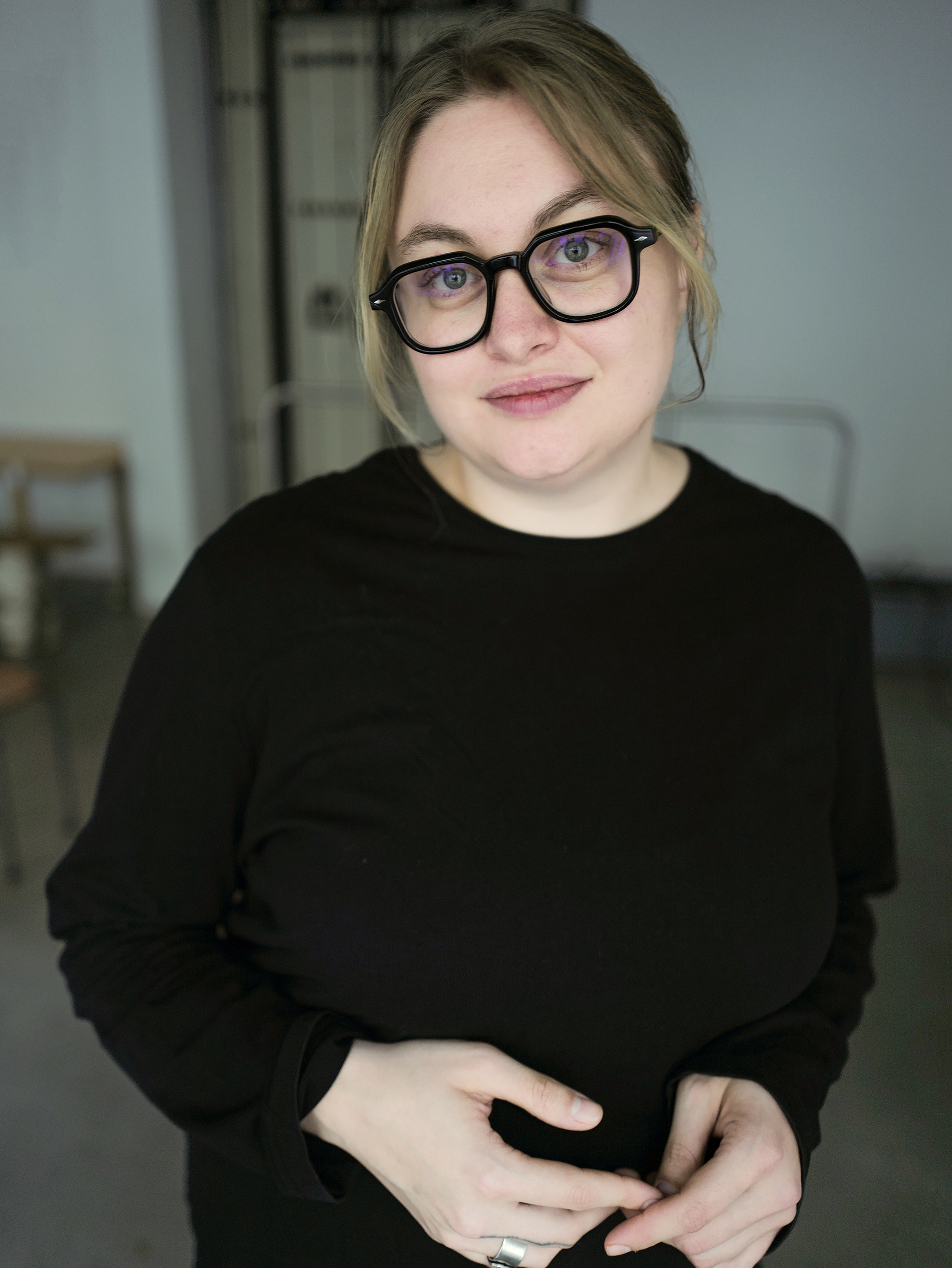
NATÁLIE KUBÍKOVÁ ︎︎︎ October 2023–December 2023
Natálie Kubíková is an independent curator based in Paris and Prague. She is a director and founder of Prague based gallery and residency program, Garage Gallery. Her underlying curatorial practice stems from an interest within reflections on social collectives such as family, neighbourhoods, relationships, friendships, cultural practices and stereotypes. Her current ongoing research practice focuses on representation of female homosexual narratives, where things such as resistance and familial, social or emotional background are combined with polemics about the eclipse of lesbian presence in our collective imagination. She is currently working for a prospective bureau called NONFICTION in Paris.
The residency is supported by Hope Recycling Station made possible by the National recovery plan, Ministry of Culture Czech Republic.

NONA MARKARIAN ︎︎︎ September 2023–November 2023
Nona Markarian (b. 1992 is a Tbilisi-based curator and cultural producer. She graduated with a Master's in "Innovation and Organisation of Culture and the Arts" (UNIBO, Italy, 2020) and since then, she’s been exploring alternative exhibition formats, focusing on site-specific works. She also co-founded Minadoraserver collective, which aspires to fire up emancipatory digital artistic tools in Georgia. Nona is a recipient of Prince Claus Seed Award for her contributions to artistic practices that address local social and political issues. Currently, her research is dedicated to the Black Sea region, where she explores its post-socialist heritage and the intricate political and cultural complexities it entails.
The residency is supported by ifa (Institut für Auslandsbeziehungen).

ZHENIA MOLIAR ︎︎︎ February 2023–February 2024
Zhenia Moliar (b. 1981, Kyiv, Ukraine) is an art historian who studied at the National Academy of Fine Arts and Architecture in Kyiv. Moliar works on the cultural heritage of the Soviet period, in particular monumental art. She is involved in curating a project SOVIET MOSAICS IN UKRAINE. She is also a member of the self-organized initiative DE NE DE which study and preserve unrecognised and unobvious cultural heritage in Ukraine.
The residency is supported by the Fellowship Program “Weltoffenes Berlin” by the Senate Department for Culture and Europe.
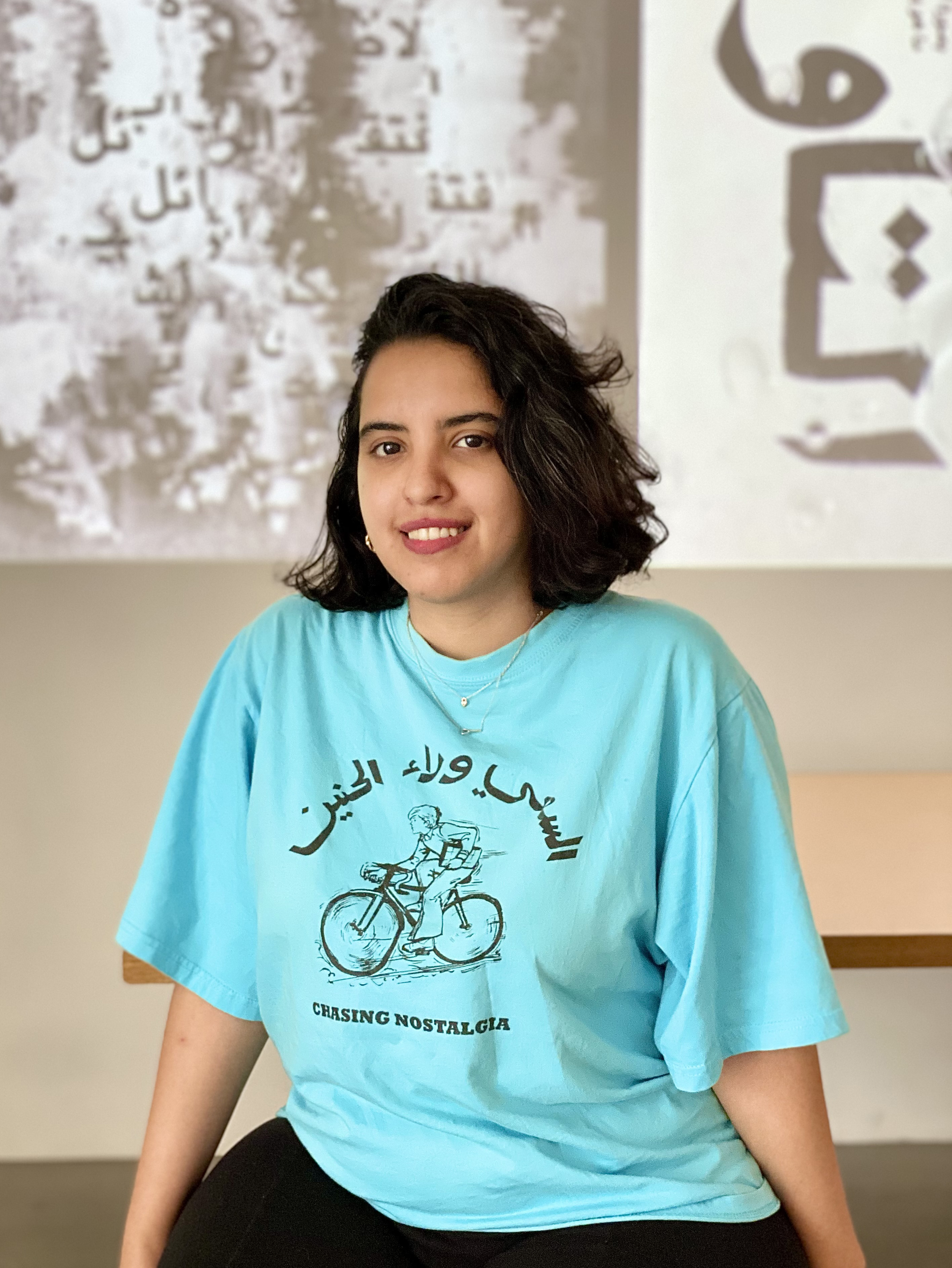
FAI AHMED ︎︎︎ July – August 2023
Fai Ahmed (b. 1994, Taif, Saudi) is a multimedia artist, her work focuses on the politics of memory and the aesthetics of digital error. Each of her works sits at the juncture of two entirely different explorations: the exploration of ideas and the exploration of the process of artistic creation. She published her first art book in 2020 titled “Untitled Album” and has exhibited at numerous local and international exhibitions, most notably in Saudi Arabia, Egypt, Jordan, and NYC.
The residency is supported by Art Jameel and Goethe-Institut Saudi Arabia part of a three years collaboration with Slavs and Tatars to support young practitioners from Saudi Arabia.
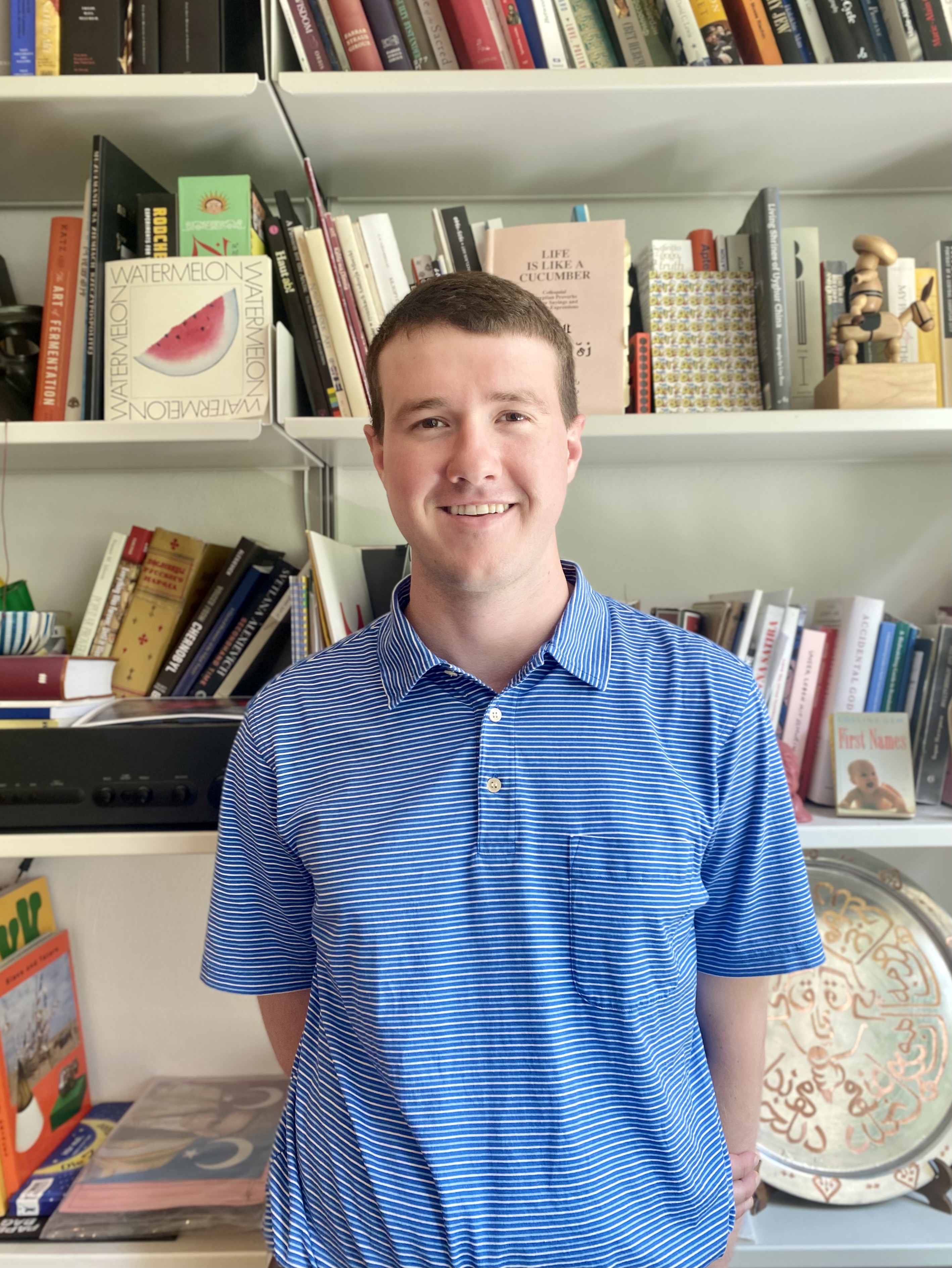
ALEX FISHER ︎︎︎ July–August 2023
Alex Fisher (b. 1996, Fairfax, Virginia, USA) is a writer and curator from Buffalo, New York. He graduated with a master’s in Design Studies (Domain: Narratives; Trajectory: Power and Place) from Harvard University. His research interests are in (re)formations of legacy and the mutual associations of natural, built, and political environments in formerly socialist contexts. In 2019-2020, he served as a Fulbright Scholar in Ukraine, during which he conducted fieldwork and organized artistic programs in cooperation with a variety of public and private cultural platforms, including Mystetskyi Arsenal and Izolyatsia.
His residency is supported by the Davis Center for Russian and Eurasian Studies at Harvard University, where he is a Graduate Student Associate.
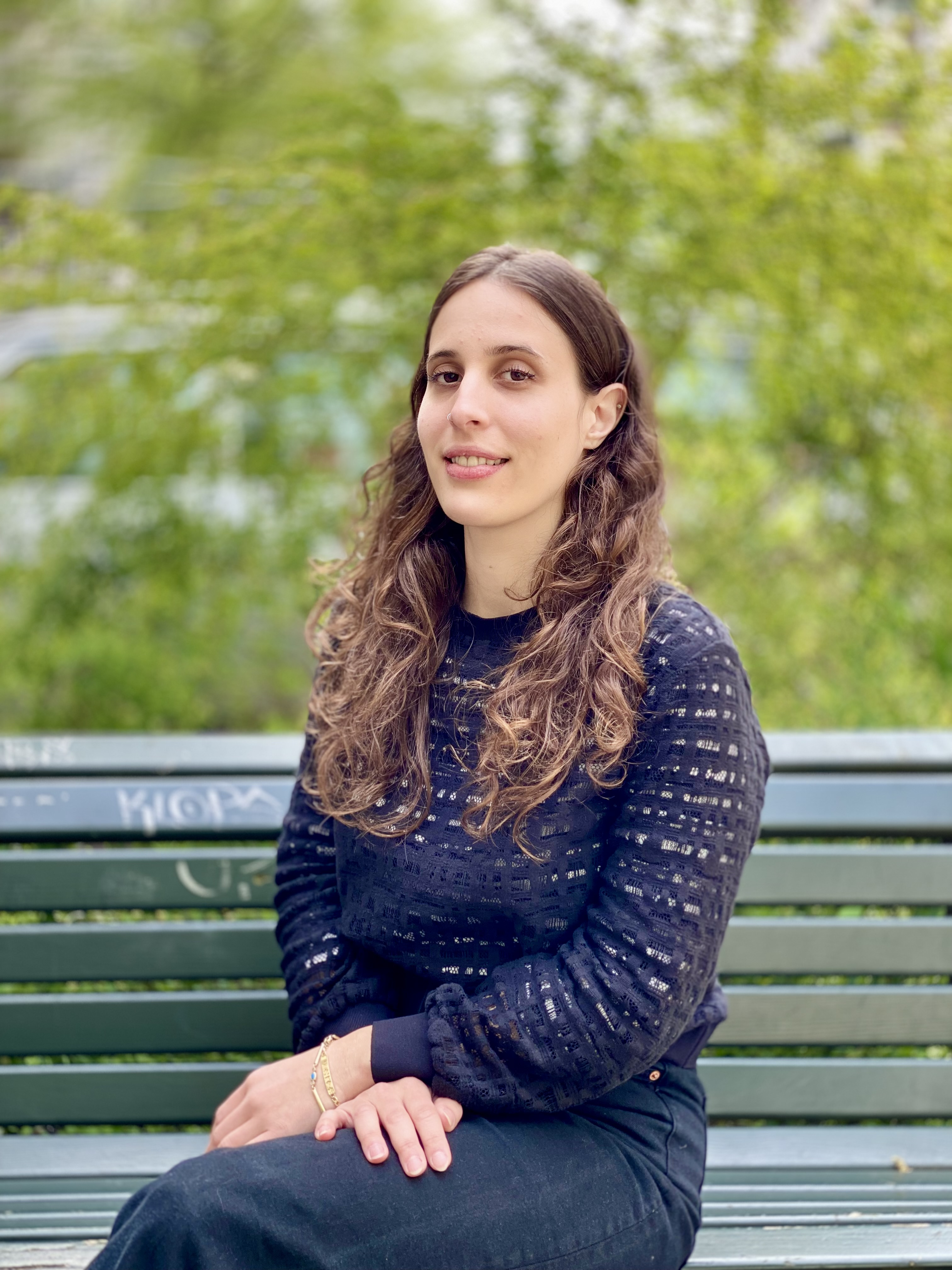
DENIZ KIRKALI ︎︎︎ April–June 2023
Deniz Kirkali (b. 1992, Izmir, Turkey) is a curator and writer based in Istanbul and London. She has co-founded topsoil, a transnational curatorial and research collective, and Garp Sessions, a summer programme in Babakale, Turkey. Her writings have been published internationally on platforms such as AQNB, Flash Art, this is tomorrow and Art Unlimited. She is the co-author of Otomy, published in 2022. She is currently doing her PhD in Advanced Practices at Goldsmiths, University of London.
The residency is supported by SAHA – supporting Contemporary Art from Turkey, within the scope of SAHA Studio.
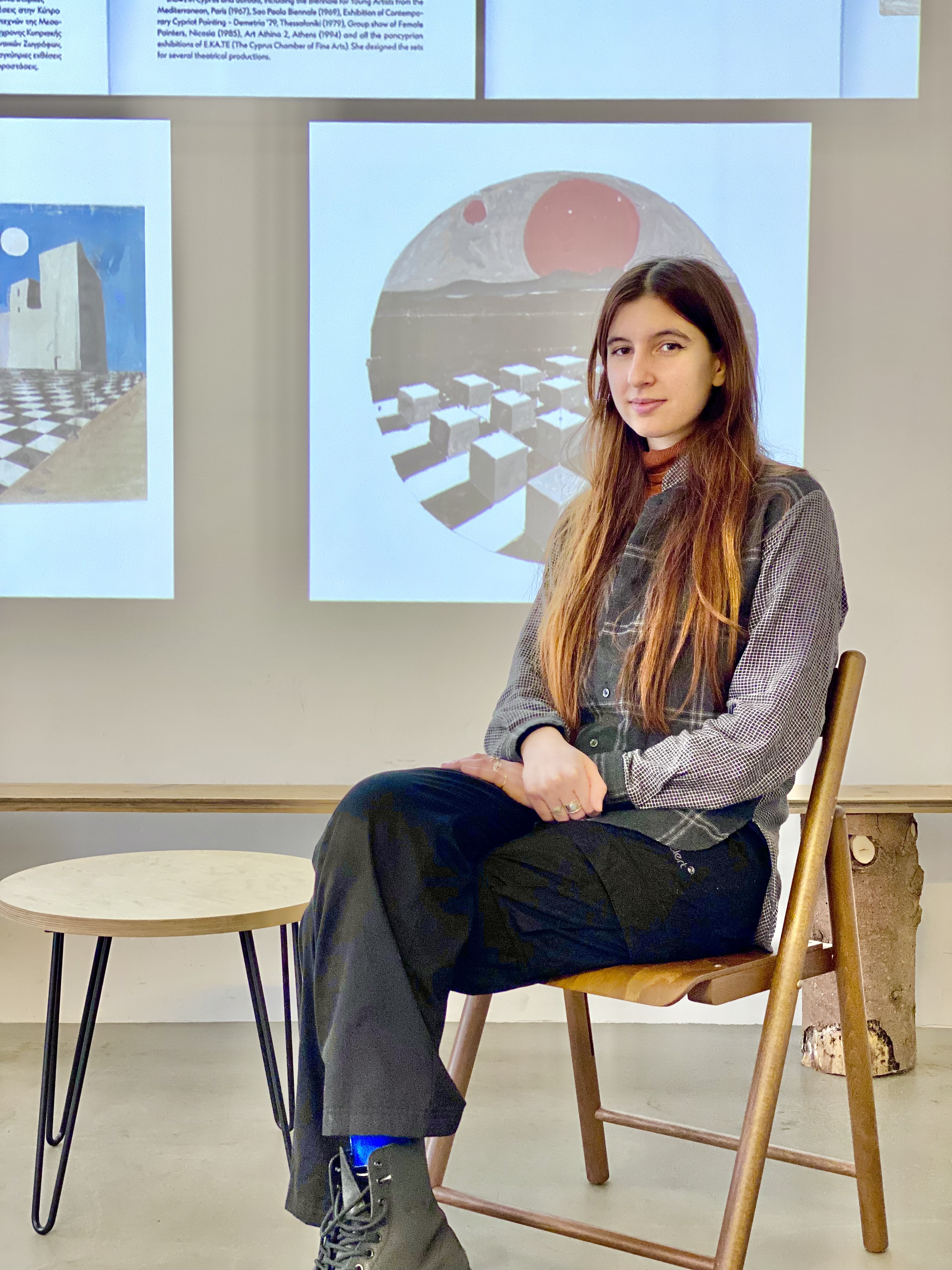
IOULITA TOUMAZI ︎︎︎ February–April 2023
Ioulita Toumazi (b. 1996, Limassol) is an art theorist, curator and writer. Her research interests revolve around contemporary Cypriot art, postcolonialism, memory and language. Under this research perspective, she co-curated the exhibition "8΄20”: Vera Gavrielidou-Hadjida" at Garage Art Space and curated "Seeking Roots" at NiMAC. She was the project manager of various cultural projects, including "The Broken Pitcher" at Thkio Ppalies and "Christoforos Savva: Unbound" in London. In 2022 she wrote and co-directed the interdisciplinary performance “setting the codes for the heart of a dream”. She holds an MA in History of Art from UCL and a BA in Liberal Arts from the University of Kent, with a year at the Sapienza University of Rome.
The residency is supported by ifa (Institut für Auslandsbeziehungen).

AIGERIM KAPAR ︎︎︎ September–October 2022
Kapar (b. 1987, Almaty - Astana) is an interdependent curator, interdisciplinary researcher, and a decolonial activist in Kazakhstan. Kapar founded Artcom Platform, a Central Asian community-based contemporary art and public engagement organization in 2015. She has also been organizing Art Collider, a school where art meets science bringing communities together, since 2017. Currently Kapar curates a hybrid reality project Steppe Space, the place for contemporary art and culture of Central Asia, and initiated projects of care for lake ecosystems SOS Taldykol and Balqashqa Qamqor in 2020.
The residency is supported by Goethe-Institut Almaty.
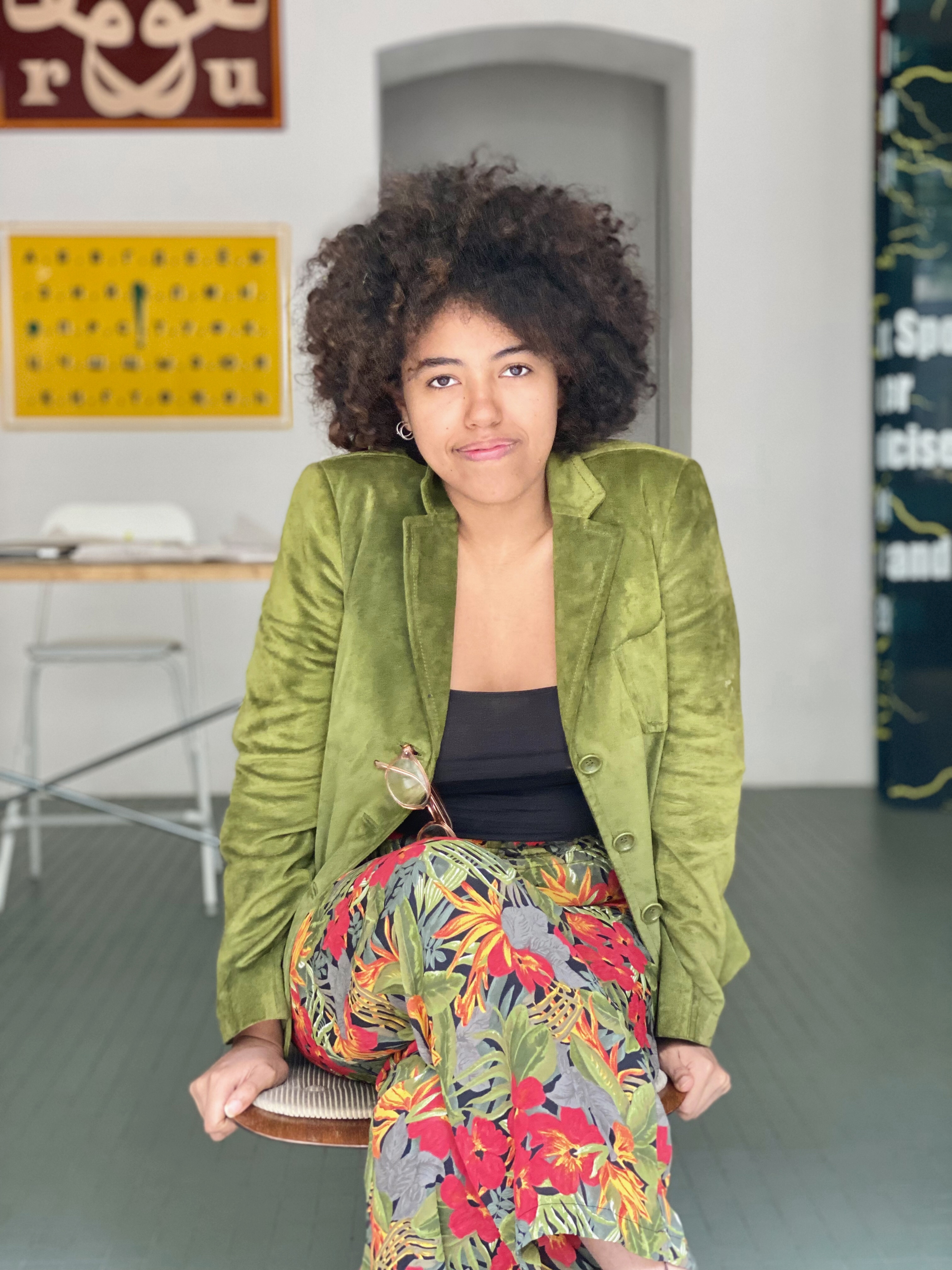
ANHAR SALEM︎︎︎ July–August 2022
Salem (b. 1993, Jeddah, Saudi Arabia) has a multi-ethnic background (Yemeni and Indonesian). She studied IT at Arab Open University and Le Fresnoy Studio in France. As an autodidact video artist, her work attempts to explore, document, and open new public and private spaces associated with themes such as everyday life, body, and social media.
The residency is supported by Art Jameel and Goethe-Institut Saudi Arabia part of a three years collaboration with Slavs and Tatars to support young practitioners from Saudi Arabia.
![]()
DORA VASILAKOU ︎︎︎ May–June, November–December 2022
Vasilakou (b. 1992, Athens) is an Athens-based curator and researcher. Her work lies at the intersection between art, politics and archival practices through an ecofeminist and decolonical perspective. Her latest interdisciplinary research revolves around the notion of animality in contemporary thought and social realities, looking into the hybridity, sensitive complexity and resistance of non-human systems beyond hegemonic anthropocentric narratives.
The residency is supported by ifa (Institut für Auslandsbeziehungen).

AYLIME ASLI DEMIR ︎︎︎ March–May 2022
Demir (b. 1988, Turkey) is a feminist-queer activist who work on curatorial and editorial projects. She has been working as the academic and cultural studies department coordinator at Kaos GL (Kaos Gay and Lesbian Cultural Research and Solidarity Association) since 2013. She is the director of Ankara Queer Art Program – Artist Residency, which was established in 2020 and also editor in chief of the Queer series of NotaBene Publishing House. She currently lives in Ankara, Turkey.
The residency is supported by SAHA – supporting Contemporary Art from Turkey, within the scope of SAHA Studio.
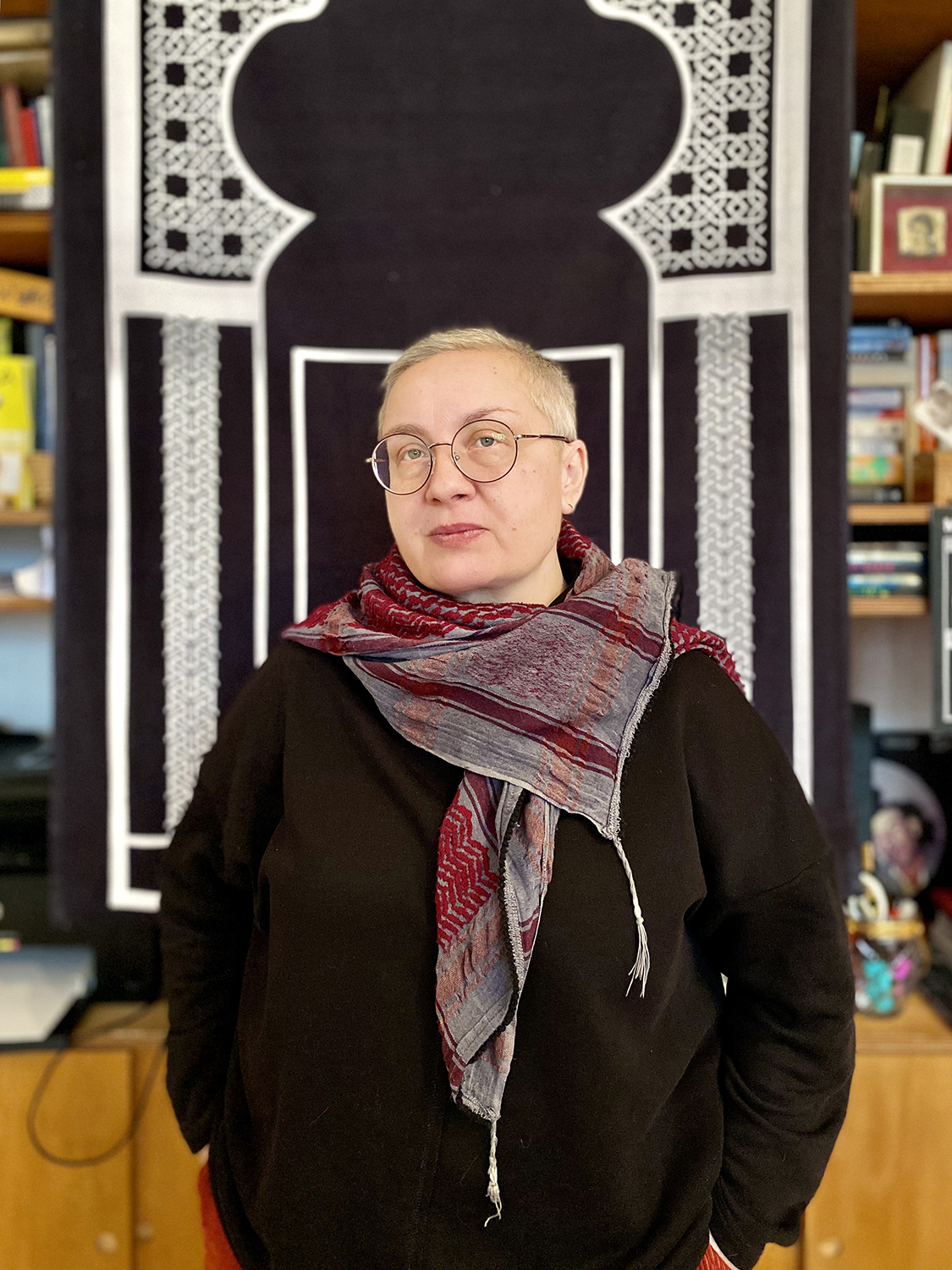
YULIYA SOROKINA ︎︎︎ February 2022–February 2023
Sorokina (b. 1965, Shyuchinsk, Kazakhstan) lives and works in Almaty. She holds a PhD from Zhurgenov Kazakh National Academy of Arts and works as a freelance curator, writer, tutor and lecturer in contemporary art. She is a member of AICA (The International Association of Art Critics) and CIMAM (International Committee for Museums and Collections of Modern Art), is a chair-person on the board of Asia Art+ Public Foundation and is a senior lecturer at the Zhurgenev Kazakh National Academy of Arts. She has curated the ongoing digital resource and moving virtual museum of Central Asian contemporary art astralnomads.net; “The School of Artistic Gesture” for young artists (2016–2021); Eurasian Utopia: Post Scriptum (2018–19), Suwon Ipark Museum of Art, Suwon, South Korea (co-curator); Muzykstan, the 2nd Central Asia Pavilion, 52nd Venice Biennial (2007), among others. She has contributed to more than 40 publications in local and international catalogues, books and journals.
The residency is supported by the Fellowship Program “Weltoffenes Berlin” by the Senate Department for Culture and Europe.

TEODORA JEREMIĆ ︎︎︎ October–December 2021
Jeremić (b. 1991, Belgrade, Serbia) is an art historian, curator and editor focused on researching the intersection of decolonial practices, feminist resistance and ecological thought. She is interested in the power relations along the axes of gender, class, race and geography. She comes from a borderland space, the “Other” of Europe, where Balkan myth meets post-Yugoslavian traumas and nostalgia, as well as dreams of the EU. Jeremić’s practice focuses on the liminal, marginal and hybrid in order to understand how any type of border, boundary and identity is established, and how to challenge them. She favours open structures, horizontality and dialogues, and conceives of curating as a platform for (un)learning, sharing and healing. Jeremić believes in experiences, vulnerability and experimentation; the necessity of a transformation; and a co-construction of new politics.
The residency is supported by ifa (Institut für Auslandsbeziehungen).

OLGA MICIŃSKA ︎︎︎ June–July 2021
Micińska (b. 1987, Łódź, Poland) is a visual artist currently living in Amsterdam. She graduated from the MA Art Praxis programme at the Dutch Art Institute and holds an MFA diploma in Sculpture from the Academy of Fine Arts in Warsaw. She has also trained as a woodworker, and collaborates with craft studios of various techniques. Recently she has initiated The Building Institute, an experimental and non-formal organization engaging with diverse questions surrounding the subjects of labour and technology, attempting to emancipate the undermined knowledges dwelling in the craft domains.
Micińska's residency is supported by Polnisches Institut Berlin, Amsterdams Fonds voor de Kunst and PPO Werktuig.
HANA ĆURAK ︎︎︎ April–June 2021
Ćurak (b. 1994, Sarajevo, Bosnia and Herzegovina) is a researcher, writer and producer. Her eclectic experience involves work in strategic communication, visual arts production, project management and advocacy in Germany and Bosnia and Herzegovina. She is a founder of “Sve su to vještice” (It's all Witches), an independent communication platform for the promotion of a feminist approach to security and radical democracy through digital tools and humour. Since its creation in 2015, this platform has established a new visual form of feminist communication that has been adopted by many activists across the region.
The residency is supported by ifa (Institut für Auslandsbeziehungen).
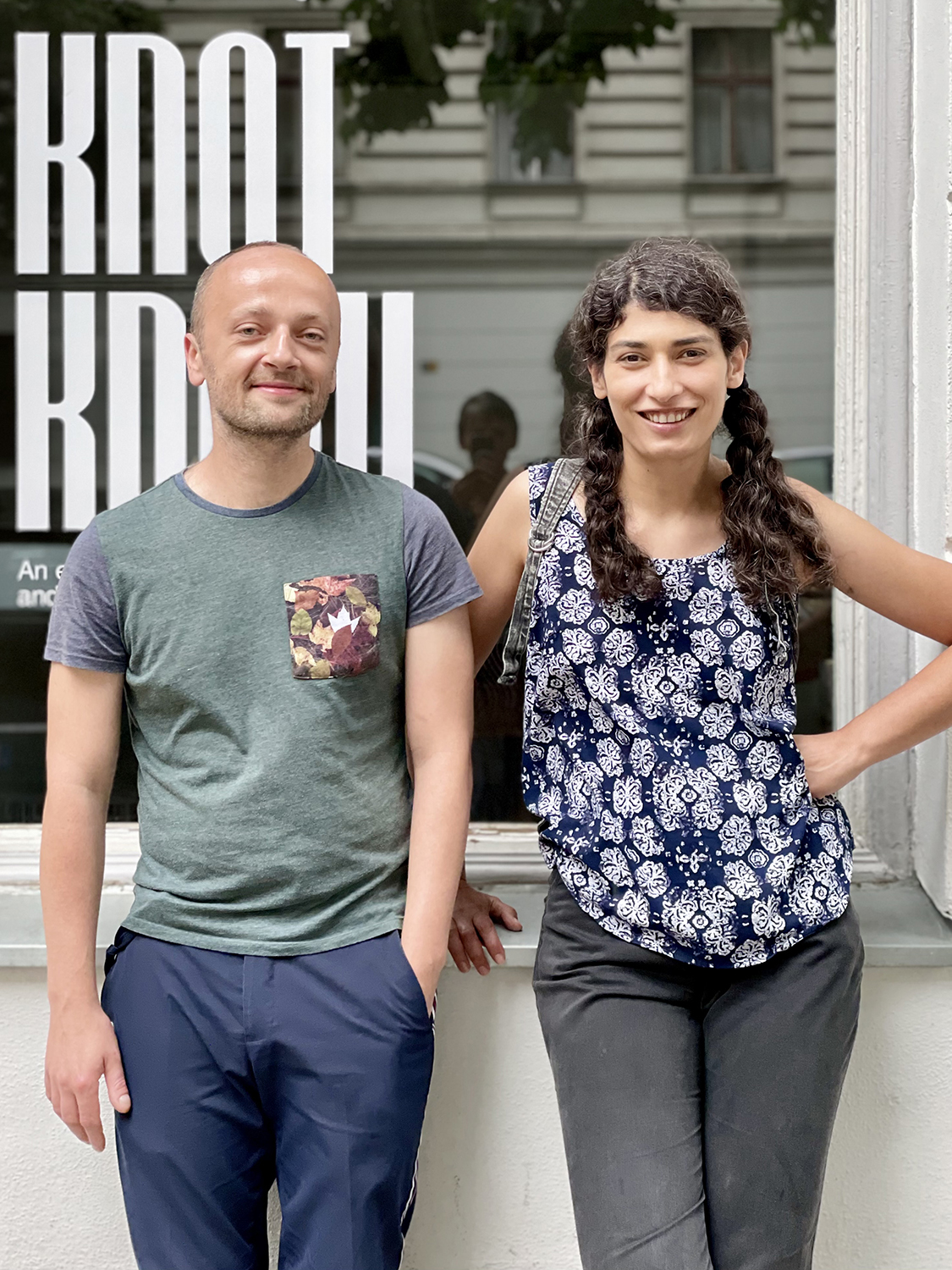
KRZYSZTOF GUTFRAŃSKI SARVENAZ MOSTOFEY ︎︎︎ Year 2021
Gutfrański (b. 1982, Lipno, Poland) is a curator, editor, and researcher. His contextual research practice pivots on issues of social engagement, alternative education, theory of value, and non-functional thinking in the era of systemic and technological transformations. Between 2016–2020 he was editor-in-chief of Obieg magazine published by CCA Ujazdowski from Warsaw.
Gutfrański's residency is supported by the Fellowship Program "Weltoffenes Berlin" offered by the Senate Department for Culture and Europe.
Mostofey (b. 1983, Tonekabon, Iran) is a sound artist based in Berlin. Her projects incorporate space as an active attribute in the process of creating art, exploring interconnections between modes of sonic attention and concepts of space. She was a fellow at the Akademie Schloss Solitude in 2020.

VASILISA PALIANINA AND ANDREY ANRO ︎︎︎ November–December 2020
Palianina (b. 1986, Minsk, Belarus) works with the topics of sexual identity, gender, human and animal natures and Belarusian politics through mythology. She works across graphics, installation, and performance, applying experimental techniques. She is a member of the art group Who Except Us. Her works are in private collections in Belarus, Poland, USA, Austria, Bulgaria, and Russia.
Anro (b. 1987, Smarhon, Belarus) uses painting, photography, digital collage and installation to explore topics of collective memory, historical heritage, politics, dictatorship, religion, disappearance and death. He is a member of the art group Who Except Us. The artist's works are in the collection of the Museum of Contemporary Art in Krakow (MOCAK), in the ART4 Museum in Moscow, and in private collections in Sweden, Canada, Russia, and the USA.
The residency is supported by Goethe-Institut Minsk.

ALPER TURAN ︎︎︎ November–December 2020
Turan (b. 1993, Ankara, Turkey) is a curator and researcher based in Istanbul and Berlin. His current research and curatorial practice focus on queer strategies and methodologies which include but are not limited to: collective fiction and fictional archive-building, appropriation, and anonymity. Between 2016–2018, with a curatorial collective Das Art Project, he co-curated four site-responsive exhibitions, including Genetically Modified (2017), commissioned for the 13th Sharjah Biennial’s off-site exhibition. In 2018, Turan curated Positive Space, an exhibition project on HIV/AIDS in Istanbul. In 2020, Turan started his PhD in theory and history of arts at the College of Fine Arts in Hamburg (HFBK).
The residency is supported by SAHA – supporting Contemporary Art from Turkey, within the scope of SAHA Studio. It is part of a collaboration between SAHA Foundation and Slavs and Tatars to promote cultural exchange and introduce young generation of Turkish artists and curators in Berlin.

EVGENIA MYASNIKOVA ︎︎︎ March–April 2020
Evgenia Myasnikova (b. 1987, Khabarovsk, Russia) is the founder of Artservatory – a center of contemporary art in Khabarovsk, in the Far Eastern Federal District of Russia, a mere 8 hr flight from Moscow but an interminable 2 and 1/2 hrs from Tokyo. She is a curator, artist, and snowboarder. Myasnikova works with the identity of this region, especially the areas of hybridity, and how these impact the decentralization of art from its self-ordained capitals.
The residency is supported by Goethe-Institut Novosibirsk.
ANASTASIA AKHVLEDIANI ︎︎︎ October–November 2019
Akhvlediani (b. 1996, Tbilisi, Georgia) works across painting, sculpture, installation and digital art. Her practice translates tendencies and characters of everyday life and cultural symbols of Georgia into different materials and media. She participated in exhibitions in Georgia and abroad. Akhvlediani is also a founder of an auction house NOT A CHARITY AUCTION in Tbilisi.
The residency is supported by Goethe-Institut Tbilisi.

OLIA SOSNOVSKAYA ︎︎︎ March 2019
Sosnovskaya (b. 1988, Minsk, Belarus) is an artist, researcher, and writer. She works with text and performative and visual practices. Her research interests include the problematics of festivity, collectivity and affect; body, dance and decolonial studies; contemporary modes of work and leisure and their intersection. She is a member of the artistic-research group Problem Collective and the WORK HARD! PLAY HARD! working group. She took part in various performance and media festivals and group exhibitions in Belarus, Ukraine, Sweden, Germany, Bulgaria, Finland, and others.
The residency is supported by Goethe-Institut Minsk.
ASYA YAGHMURIAN ︎︎︎ January–June 2019
Yaghmurian (b. 1990, Yerevan, Armenia) has gained experience working for international media and curating art projects like the Dilijan Arts Observatory 2016 and the “Portable Homelands” chapter of the exhibition Hello World. Revising a Collection at Hamburger Bahnhof – Museum für Gegenwart – Berlin. She is also the founder and curator of Armenia’s Design Pavilion.
The residency is supportted by Goethe-Institut Yerevan.

ALA SAVASHEVITCH ︎︎︎ January–February 2019
Savashevich (b. 1989, Stolin, Belarus) works across photography, installation, and sculpture. Her practice looks to the elements, symbols and histories which influence her own life. Based in Wrocław, Poland, Savashevich often works with public space and has exhibited in Vienna, Shanghai and Minsk, among others.
The residency is supported by Goethe-Institut Minsk.
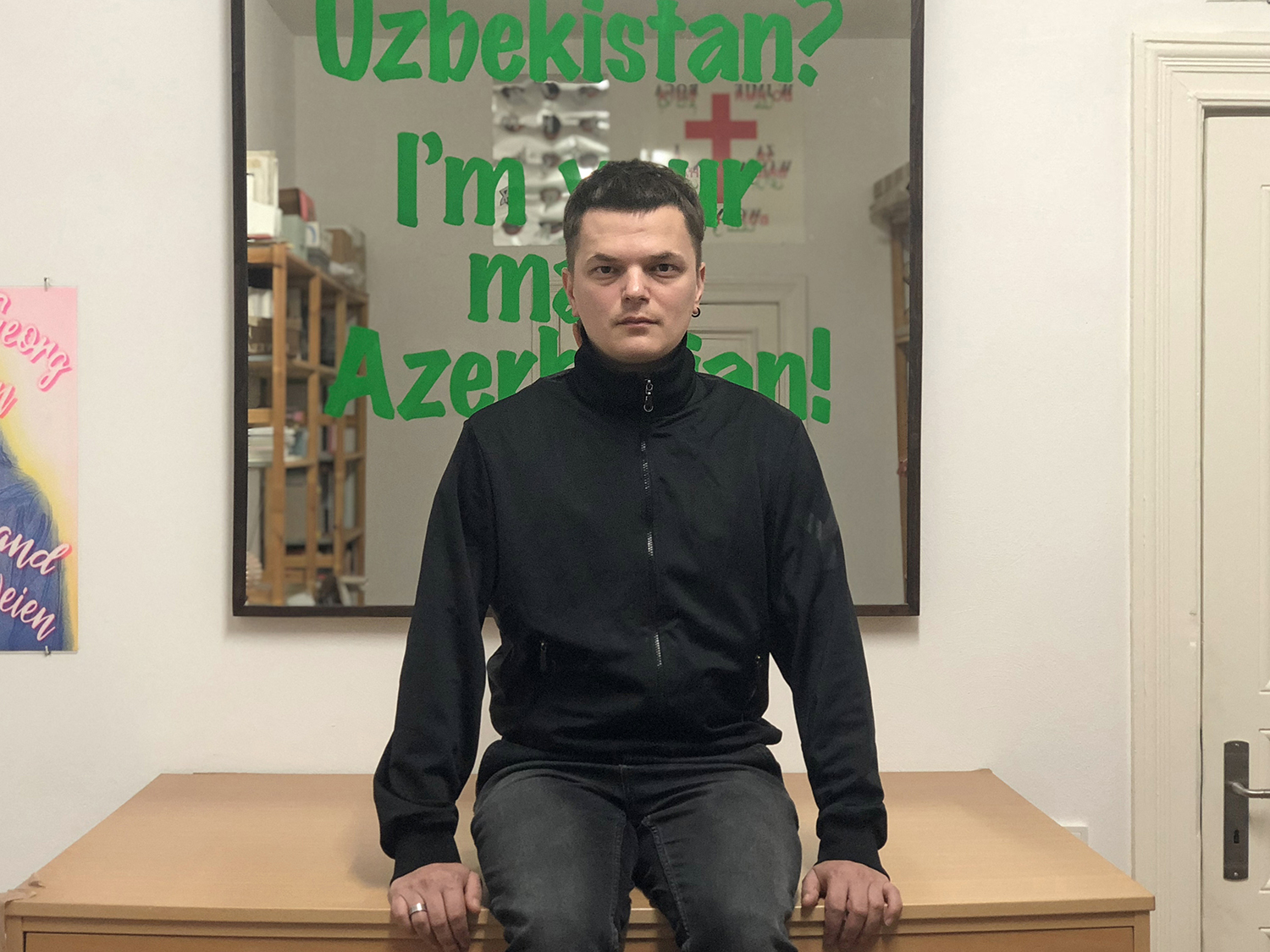
SERGEY SHABOHIN ︎︎︎ NOVEMBER–DECEMBER 2018
Shabohin (b. 1984, Novopolotsk, Belarus) is an artist, curator, art-activist, critic. Shabohin is also chief editor of the portal of contemporary Belarusian art – Art Aktivist, and co-founder and editor in chief of the platform of contemporary Belarusian art – KALEKTAR. Shabohin’s works explore the following topics: critique of cultural systems and art history, creation of authorial museums and archives, revealing of invisible history, and the category of fear and social bodies in Belarusian society.
The residency is supported by Goethe-Institut Minsk.



